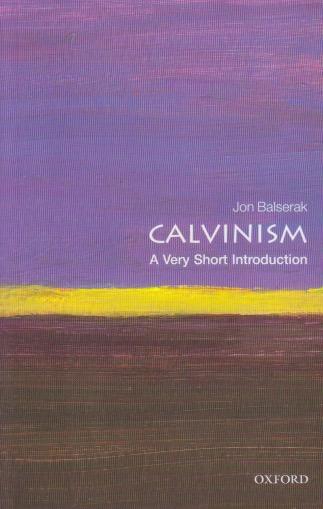
It’s good to refresh yourself once in a while. I attended a Calvinist college and my doctoral program was in the context of an institution strongly influenced by Calvinism. I took courses based on Calvinistic theology. Jon Balserak’s Calvinism: A Very Short Introduction was really a refresher for me and I have to admit that it sparked a pretty strong reaction. For one thing, many Calvinists unthinkingly accept the tradition in which they were raised. (Call it indoctrination, literally. This is true of most religions.) Those I know seldom believe what Calvinism teaches, for it presents God as a monster. (This is me, not Balserak, and I mean this in the kindest possible way.) You see, doctrinally Calvinists have to accept Scripture literally and if you do that you come up with all kinds of contradictions. (The amount of special pleading is mind-boggling.) The way the Calvinists landed on this was that God created us for his glory, which will be shown in predestining large numbers of people to Hell. These people can do nothing to change that since God doesn’t really love them. What would Jesus say?
I argued quite a lot with professors at Grove City College. I was raised a Fundamentalist, but of the free will stripe. The Methodist Church, which I eventually joined, was not Calvinistic in outlook. (Neither are Lutherans or many others.) Still, Calvinism has unduly influenced American culture—I wish the book would’ve focused more on this. We are, culturally, heirs of Calvinism. This little book points out one obvious way this is so, namely, the separation of church and state. There are many other features that could be pointed out, but the book aims to be universal and this is therefore not a theme.
The book approaches Calvinism theologically. There’s quite a lot of “shop talk” here that I imagine might put off those who don’t really care to know who said what about a particular point of doctrine. Balserak points out that Calvinism is complex and there is no one way of looking at everything, but there are clearly some non-negotiables. These non-negotiables are precisely what prevented me from ever trying Calvinism on for size. I’ve moved through various religious outlooks on my journey that is geared toward finding the truth. Calvinism never tempted me, nor did it ever seem to make sense. It was as if the tradition accepted that Zwingli and Calvin and company had gotten the basics all correct and every act of theology since then involves a casuistry to prove the early teachings correct. Why not question things? Well, I guess they’re predestined not too.
